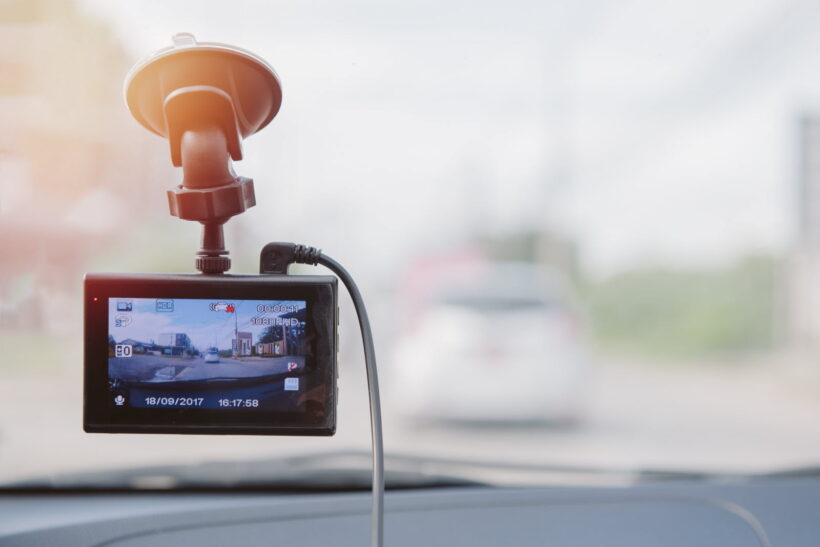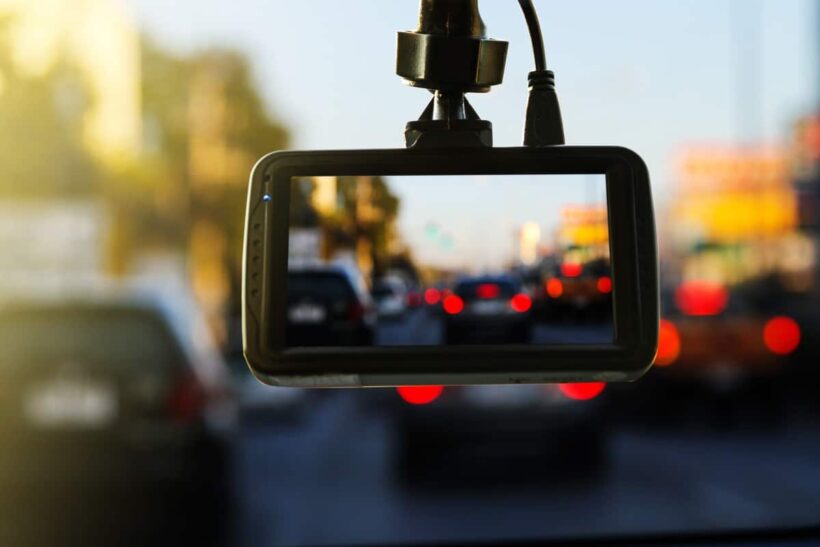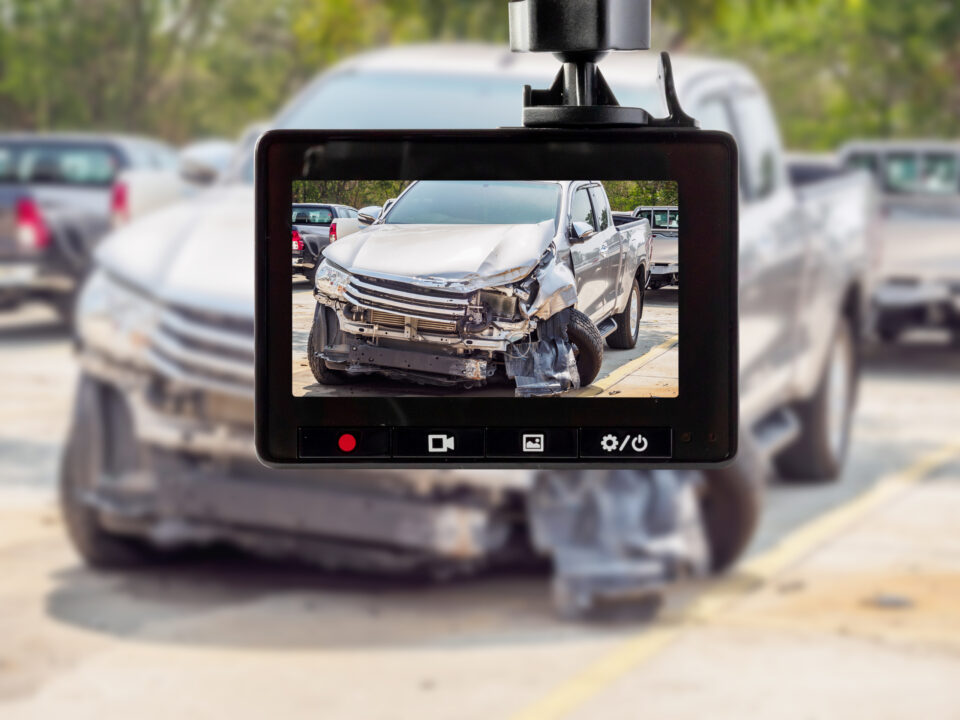Car accidents happen in a split second, but their impact—physically, emotionally, and financially—can last for months or even years. When you’re involved in a crash, especially one where fault is disputed, one of the most powerful tools you can have on your side is dashcam footage.
Dashcams, or dashboard cameras, are small video cameras mounted on the windshield or dashboard of a vehicle. They continuously record the road ahead (and sometimes behind or inside the car). Once considered a novelty, dashcams are now a practical necessity for many drivers—and they’re becoming increasingly important in personal injury cases.
If you’ve been injured in an accident and you (or someone else involved) has dashcam footage, it could be the key to proving what really happened. Below, PKSD reviews the benefits of dash cam footage after an auto accident.
Why Dashcam Footage Matters After a Crash

After a car accident, each party may have a different version of events. Insurance companies often conduct their own investigations, but they typically rely on:
- Police reports
- Statements from drivers and witnesses
- Photographs of vehicle damage
- Medical records
The problem? Witness memories fade, police officers don’t always see the crash occur, and the physical evidence may not clearly show who caused the crash.
Dashcam footage fills that gap. It provides a real-time, objective record of the accident as it happened—leaving little room for misinterpretation or dishonesty.
1. Dashcam Footage Can Clearly Show Fault
In many crashes, proving fault is the biggest challenge. Dashcam video can:
- Show a driver running a red light or stop sign
- Capture someone speeding, tailgating, or weaving between lanes
- Reveal if a driver was texting or distracted
- Prove a driver failed to yield, made an illegal turn, or changed lanes unsafely
For example, in a rear-end collision, the driver in the back is usually assumed to be at fault—but what if the driver in front cut you off and slammed on their brakes? Dashcam footage can support your version of events and prevent you from being unfairly blamed.
2. It Can Prevent Insurance Denials or Lowball Offers
Insurance companies are not in the business of paying out more than they have to. If they believe there’s any ambiguity or doubt about what happened, they may:
- Deny your claim
- Blame you for part or all of the accident
- Offer a much lower settlement than you deserve
When you submit dashcam footage showing the other driver’s negligence, you strengthen your negotiating position. Insurance adjusters are more likely to approve your claim or increase their offer when they see clear, indisputable evidence.
3. Dashcams May Capture Hit-and-Run Drivers

In a hit-and-run, you might not have time to grab the license plate or description of the fleeing vehicle. A dashcam can help by:
- Capturing the vehicle’s make, model, and license plate
- Providing a timestamp and exact location of the crash
- Offering evidence that you were not at fault
Even if your dashcam didn’t catch the full plate, law enforcement can sometimes use partial information and video analysis to track down the driver.
4. They Can Record More Than Just the Crash
Some dashcams come with rear-facing or cabin-facing cameras, and many also record sound. Depending on where and how the camera is mounted, it may record:
- The moments leading up to the crash (like aggressive driving or road rage)
- The reaction and words of the other driver afterward
- Passenger statements
- Emergency response times and actions
All of this adds context to your claim and can strengthen your case in a personal injury lawsuit.
5. Courts and Insurance Companies Trust Video Evidence
While police reports and witness statements are important, video evidence carries tremendous weight—especially when it’s timestamped, unedited, and clearly shows what occurred.
Judges, juries, and insurance adjusters are human. Seeing video footage helps them understand the mechanics of the crash better than written reports ever could.
6. Dashcams Can Help Disprove False Claims
Unfortunately, some drivers lie or exaggerate to avoid responsibility. In worst-case scenarios, fraudsters stage accidents or make false injury claims. Dashcam footage can:
- Disprove false accusations
- Prevent you from being blamed for something you didn’t do
- Protect you from being targeted in a staged crash
In some states, dashcam video has even been used to expose insurance fraud rings.
7. How to Use Dashcam Footage in a Legal Case

If you’re in an accident and have dashcam footage, follow these steps:
- Back up the footage immediately. Save it to a secure location like a cloud account or external drive.
- Do not edit the footage. Altering the video—even to trim it—could cause credibility issues or make it inadmissible.
- Note the date, time, and location. Most dashcams record this automatically, but verify it’s accurate.
- Tell your attorney. A personal injury lawyer can use the footage during settlement talks or in court.
- Share it with your insurance company (but only after speaking to your lawyer if injuries are involved).
If the other driver had a dashcam, your lawyer may be able to request that footage during the discovery phase of a lawsuit.
8. Laws on Dashcam Use Vary by State
In most U.S. states, it is legal to use a dashcam, but there are a few important considerations:
- Audio recording: Some states require the consent of all parties before audio can be recorded.
- Windshield mounting: A few states regulate where and how a dashcam can be mounted so it doesn’t obstruct the driver’s view.
- Privacy: You generally can’t use dashcam footage recorded on private property (like someone’s driveway) without consent.
Always check your state’s specific dashcam laws to avoid complications.
9. Dashcams Are an Investment in Protection
Basic dashcams cost as little as $50, while more advanced models with GPS, rear-view recording, and parking mode range from $150 to $300. For the cost of a single insurance deductible, you can protect yourself from false claims and have peace of mind every time you hit the road.
Need Help After a Car Accident?
If you’ve been injured in a crash and have dashcam footage—or if you’re not sure how to gather the evidence you need—an experienced personal injury lawyer can help.

